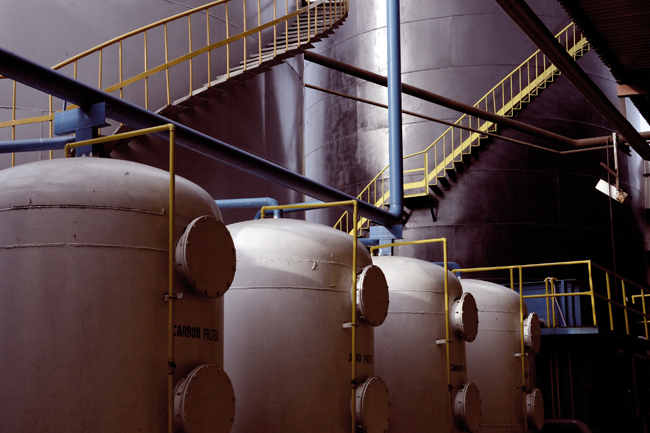Across Africa, countries are approaching a critical decision about the local use and worldwide export of hydrocarbons.
Commercially viable new oil and the rate of gas discoveries is increasing across all regions. In the last decade several new states have joined established producers such as Nigeria, Libya, Angola, Algeria and Sudan. Local consumption of hydrocarbons – for transport, power supply and manufacturing – is predicted to increase at more than double the world average over the next 20 years, and countries are looking to cash in on easy revenues from crude exports.
These changing conditions have sparked an important debate. Should African oil states (or subregions) try to develop their own refining capacity with all its potential benefits and costs, or should they focus chiefly on generating income by exporting unrefined products, whether crude oil or liquefied natural gas?
The debate spans decades, but more and more countries are accepting the need to increase their refining capacity. PwC estimates that African refineries currently handle around only 2.9% of global crude throughput and represent 3.7% of total world capacity. These are small percentages that look certain to increase over the next decade as new refineries are installed and existing facilities are utilised more efficiently.
Africa’s largest oil state, Nigeria, is perhaps the prime example of a major global producer that has previously held back from domestic refining. Its experience highlights some of the risks of this approach.
Data compiled by writer Simon Allison for the research group Good Governance Africa shows that while Nigeria is the continent’s leading producer of crude oil – at around 1.95 million barrels per day (bpd) – it is nevertheless one of the continent’s largest importers of refined petroleum goods.
The country buys in around 351 000 bpd of refined petrol, diesel and oil, as well as many other basic industrial materials that could be manufactured locally if refined hydrocarbon feedstock was available.
Nigeria may make profits on crude, but it misses out on income from a wide range of other industrial sectors and job creation from local refining. The fuel price is a politically sensitive issue in most countries, but particularly in oil-producing states where citizens rightly expect to benefit from local resources in the form of lower prices.
In an inefficient trade loop, Nigeria uses its oil export earnings to buy back its crude oil as refined fuel, at a mark-up pocketed by refineries elsewhere.
The country then diverts another proportion of its revenues to subsidise lower fuel prices locally. PwC analysts say the system further undermines incentives for local refining as crude producers find better prices for their product on international markets. But all refining states face this problem.
That said, there’s a strong argument in favour of local refining, given Nigeria’s massive oil reserves, large population, local demand and geographical suitability as a potential regional supplier of refined products. It already has the fourth-highest refining capacity in Africa at 445 000 bpd, after Egypt (775 000 bpd), Algeria (652 500 bpd) and South Africa (545 000 bpd).
However, as analysts from the US-based Brookings Institution have noted, this is less than 20% of Nigeria’s daily crude production. Its refineries also consistently operate at less than 50% capacity. And it’s not only local politics that influence the underdevelopment of national refining potential. Significant pressure is felt from foreign refiners and host governments who want to maintain their cheap crude supply and preserve their African markets.
It’s not quite as clear-cut for other African oil states where local reserves and demand may not justify the heavy capital costs of a large refinery. To solve this, clusters of states with relatively small hydrocarbon resources could consider joint investment in a single, large regional refinery and pipeline system. But this would require the confidence that each state would have political stability and contribute financially.
Alternatively, smaller producers can take advantage of recent improvements in modular refinery technology to help build smaller units, which can be incrementally expanded as production increases or financing is acquired.
Oil consultancy Cenam Energy Partners reports that a 30 000 bpd modular refinery can be installed for around US$200 million, compared to US$5 billion to US$7 billion for a 200 000 bpd ‘full-conversion’ refinery (keep in mind that the latter can produce a wider range of refined products).
Recent developments across Africa show that all options are under consideration. Some of the largest developments are in states where refining has already demonstrated its value to the economy. In Algeria, for example, state company Sonantrach has said that it will invest
US$80 billion in additional oil infrastructure, including four new refineries.
In Egypt, despite recent political turmoil, the government plans to spend US$12.5 billion on additional refining infrastructure over the next five years. This will increase the country’s refined output by 5% to 10% each year.
In Nigeria, billionaire businessman Aliko Dangote recently revealed plans to build a US$9 billion refinery near Lagos. It is expected to process 400 000 bpd in 2016 when it plans to open. This is more than the country’s total domestic needs.
The project is underpinned by US$3 billion in equity from the Dangote Group. A banking consortium led by Standard Chartered has also committed about US$3.3 billion of US$6 billion in total funding. The refinery is expected to add at least 30 000 direct and indirect jobs, halve Nigeria’s fuel imports, and allow the country to become a net exporter of fertilisers for the first time. Also in West Africa, Ghanaians are fiercely debating their national refining strategy as the nation’s crude production increases.
Ghana’s Tema oil refinery is a legacy from the Nkrumah years, with an underutilised capacity of around 45 000 bpd. Despite pressure to remain focused on crude exports, it looks increasingly likely that a major new facility will be installed. In August, US firm Cox Oil said it would build a small US$600 million facility at the port of Takoradi. Meanwhile South Africa-based New Alpha Refinery has signed a memorandum of understanding to build a US$6 billion, 200 000 bpd facility in Ghana.
In East Africa, after political wrangling between Kenya and Uganda, it seems as though the states have reached an agreement on the site of a major new refinery for the region. In April 2014, Kenya, Rwanda and Uganda agreed that a US$2.5 billion facility would be built in western Uganda, with refined products likely to be exported by pipeline via Kenya.
Uganda recently said that it is in the process of choosing between two final bidders to perform construction work on the project, which is expected to begin production in 2017 with an output of 60 000 bpd. This is a highly significant step in the development of East Africa as a global oil province.
At the far end of the continent, the picture is a little less clear. The gas and potential oil finds of Mozambique require local installations to realise much of their value for the country.
However, no clear victor has emerged in the race to build a leading facility. Two large-capacity proposals have been discussed for over five years, namely the Maputo-based Oilmoz project and an alternative proposal for a major refinery at the northern port of Nacala. In 2012 Oilmoz said it had secured sufficient financing from the US to proceed and in 2013 the Nacala group announced backing from Saudi Arabia’s Radyolla Group. It remains to be seen which projects will ultimately come to fruition.
The same uncertainty surrounds South Africa’s proposed Mthombo crude refinery, announced in 2010 and intended to process 400 000 bpd when it opens in 2015. There appears to have been little development on the project in recent months. In fact, over the last 20 years, the continent has consistently had a poor record of taking major refineries from announcement to completion.
However, circumstances are changing quickly in many African states with rising local demand, increasing hydrocarbon reserves, and the urgent need to provide economic opportunities at ground level. This means the continent’s leaders should make refineries a priority.
As the Brookings Institution says: ‘If sub-Saharan Africa is going to truly transform its resource wealth into economic dynamism, and leave behind the colonial model of exporting primary resources in exchange for refined goods, it must increase its refining capacity – and better capture the more sophisticated economic opportunities that exist along the petrochemical value chain.’






